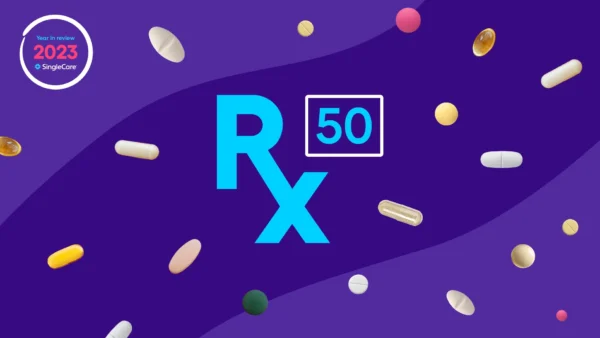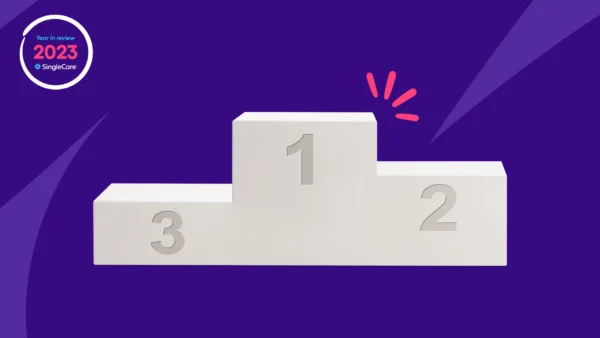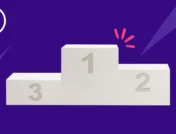As of September 2023, more than 5.1 million people were enrolled in Texas Medicaid, which makes it a vital health insurance coverage option for the state. While Texas Medicaid has not expanded its program to cover low-income younger adults, as other states have, it does have options for children, pregnant women, older adults, and those with disabilities.
Read on to see what program requirements Texans must meet to access Medicaid, what it covers, and how to apply.
Texas Medicaid Programs
Because Texas, like other states, determines how its Medicaid program is administered, it references its programs by names only used in Texas. Qualified applicants will have at least two plans to choose from, depending on where in Texas they reside and which programs they are enrolled in. Programs include:
- STAR: Available for children, infants, pregnant women, and select families
- STAR Kids: Available for those 20 and younger with disabilities
- CHIP: Available for children and infants who don’t meet the low-income qualifications but can’t afford insurance on their own
- STAR+PLUS: Available for adults aged 65 and older, adults with disabilities, and women with certain types of cancer
Eligibility for Texas Medicaid
Who can receive Medicaid coverage in the Lone Star State? Even without expanded Medicaid, there’s a possibility you can qualify.
Texas offers a range of healthcare programs, including standard Medicaid, Children’s Medicaid, and the Children’s Health Insurance Program (CHIP). Children’s Medicaid is for low-income families, while CHIP allows some children without health insurance to get covered if their families earn too much for Medicaid eligibility and they can’t afford to purchase it otherwise.
Texas extends its Medicaid coverage to cater to the healthcare needs of additional groups. This includes Medicaid for Breast and Cervical Cancer, which supports women with these specific types of cancers. Additionally, Texas offers Medicaid for qualified adults 65 and older and people with disabilities, even if they already have Medicare.
Income requirements
While income is not the only thing the state considers when a person applies, it’s very important, even though Texas has not expanded Medicaid for all low-income applicants. Texas uses several factors to determine eligibility, including the household’s modified adjusted gross income (MAGI). It’s used for the Children’s Health Insurance Program (CHIP) and some Medicaid programs. This income number is then matched against the federal poverty level (FPL) for the number of parents in the household, among other things.
Depending on the program, the applicant’s income may not exceed a percentage of the FPL for their household size. The limits are as follows:
- 198% for ages 0-1
- 144% for ages 1-5
- 133% for ages 6-18
- 201% for children under the separate CHIP program
- 198% for pregnant women
- 14% for parents or related caregivers of eligible children
Texas women who are either U.S. citizens or eligible immigrants aged 18-64 who need treatment for breast or cervical cancers may qualify for a special Medicaid program. They must not already be covered by health insurance and have a household income level below 200% FPL.
Age requirement
Texas Medicaid only covers adults younger than 65 who are either pregnant or are caregivers of eligible children who fall below certain household income limits. Some adults may qualify through their disability designation or a special program for the treatment of breast and cervical cancers, however.
Unborn low-income children and children up to age 18 may qualify through either the Texas Children’s Health Plan (Medicaid) or CHIP.
Disability requirements
In Texas, those receiving Supplemental Security Income (SSI) automatically receive Medicaid. Adults with disabilities may have the option to get Medicaid, even if they work; they can “buy in” through the Medicaid Buy-In for Adults program.
Citizenship or immigration status
Texas residency is a requirement for eligibility in both Medicaid and CHIP in Texas. Additionally, individuals must be either U.S. citizens or qualified non-citizens to meet the eligibility requirements for these programs.
Texas Medicaid benefits
Medicaid in Texas is a comprehensive medical and health coverage plan that offers many services a member would need from a health insurance provider.
Medical services covered
Texas Medicaid covers medically necessary services and treatments for low-income Texans, including:
- Doctor and dentist visits
- Hospital stays and services
- Mental health treatment and professional services
- Pregnancy care, birth control, and well-woman services
- Prescription medicine
- Some over-the-counter products, including electrolytes, diabetic supplies, and wheelchair rentals
- Vaccines
- Treatment for diseases and special health issues, including pre-existing conditions
- X-rays and other diagnostic testing
- Vision and hearing services
Those with disabilities may qualify for some long-term care services and health support, including home health care, long-term care, occupational or physical therapies, and group home fees.
Prescription drug coverage
Like most Medicaid programs, Texas offers comprehensive prescription drug coverage for covered children and adults. Choosing a pharmacy that accepts the chosen Medicaid plan is the best way to ensure it’s paid for at the full amount. Some patients may have to pay a copay or partial payment.
Dental coverage
The Medicaid for Children program covers regular checkups, cleaning, X-rays, and treatment for dental problems that kids up to age 20 may have. Adults may only be covered for emergency dental procedures as part of other healthcare services, such as treatment from an accident.
Vision coverage
Children and those with disabilities are eligible for vision care, including glasses and eye exams. This varies by program, with children getting the most coverage. The Health Steps program covers children up to age 20 for developing eye care issues and ensures they can see a vision care provider at least annually.
Mental health and substance abuse coverage
Texas Medicaid provides coverage for mental health and substance abuse services. This includes a wide range of services such as evaluations, counseling, tests, medication, emergency care, and hospital stays. If treatment at a facility is recommended, it is also covered by Texas Medicaid.
How to apply for Texas Medicaid
There are currently three ways to apply for the Texas Medicaid programs, and one application will get you access to all available programs. By coming prepared with your paperwork, you can save time and get your application processed quicker.
Required documents for application
When applying for Medicaid in Texas, you should have all relevant information readily available and be prepared to provide documentation if requested.
This includes:
- Birthdate
- Citizenship or immigration status
- Income earned from jobs, child support, and other sources
- Social Security Number (SSN)
- Total of your bills paid each month
- Value of your property, including cars and homes
Online application process
To start your online application, create an account at yourtexasbenefits.com. You’ll be able to answer questions and provide proof of your financial situation to help process your application.
Paper application process
If you don’t wish to go online, you can download forms for each type of Medicaid and print them yourself. The Texas Medicaid website lists the forms available and tells you where to mail them. If you don’t have access to a printer, call the office and request that they mail one to you.
In-person application process
Find an office near you to visit in person, get forms, and ask questions. Not all offices service all programs, so use the find an office tool to ensure you have the right location before you stop by.
Cost of Texas Medicaid
Children covered by Children’s Medicaid pay nothing to receive treatment or other covered services. Their healthcare is free.
Children and pregnant women covered by CHIP may pay an enrollment fee of $50 or less per family each year. This is based on the family’s income. Copays for services, ranging from $3 to $35, may also apply. Lower-income families will pay less than those making more money.
Adults older than 65 and those with disabilities may get free coverage for basic health services as well as long-term care services under the Medicaid for the Elderly and People with Disabilities Program. It is free and available for some adults who are already covered by Medicare.
Additional Texas Medicaid resources
- Yourtexasbenefits.com
- Learn about available programs, download the app, and apply for services online.
- Medicaid.gov
- See what the income requirements are for Texas Medicaid programs.
Texas Medicaid FAQ
How do I find a doctor who accepts Medicaid?
Not all healthcare providers in Texas accept Medicaid. Check the benefits guide that came with your coverage plan, visit the doctor finder tool on the insurer’s website, or call the number on the back of your Medicaid card to find a provider near you that accepts Medicaid. You can also call the healthcare provider directly and ask. This may be the best way since providers can discontinue Medicaid affiliation, though it may not be updated immediately on patient resource listings.
How do I renew Medicaid coverage?
Texas Medicaid no longer automatically renews. You’ll need to pay attention to the mailings or emails you receive about your health plan and respond promptly with new information to maintain your coverage. You can also check your account online at yourtexasbenefits.com to see information about your status and important dates to complete the renewal process.
How do I appeal a denied claim?
If you believe you should have received coverage or payment for services but didn’t get it, you can use your Right to a Fair Hearing. This is an opportunity to share the reasons you think you should have gotten a service. Start by mailing a letter explaining that you couldn’t get a service, then ask for a hearing within 90 days. Do this by calling 800-414-3406 or sending a letter to Texas Medicaid & Healthcare Partnership (TMHP) Attention: Fair Hearings P.O. Box 204270, Austin, TX, 78720-4270.
You will receive a response with a date and time for your hearing, along with the information you need to appear at your hearing in person or by phone. An interpreter may be provided if you let them know in advance. Within 90 days of the hearing, a decision about your claim will be made, and you’ll be notified of the results.
How do I report Medicaid fraud?
Medicaid fraud comes in many forms, from someone using a Medicaid card that isn’t theirs to lying about the services they need. If you suspect fraud, contact the Texas Office of the Inspector General (OIG) online or by calling their fraud hotline at 800-436-6184. Your report will be anonymous. However, there is a possibility that you may be requested to provide information about the individual involved in the fraudulent activity, such as their name, address, phone number, birth date, or Social Security Number. Any information that might be helpful to an investigator can be shared.
Sources
- Medicaid & CHIP in Texas, medicaid.gov
- Your health care guide, Texas Health and Human Services (2022)
- Learn how Your Texas Benefits can help you, Your Texas Benefits
- Get a paper form, Your Texas Benefits
- Find an office, Your Texas Benefits











